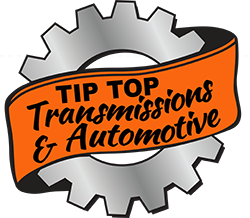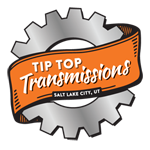There are a few examples of components you’ll find in automatic vehicles but not their manual counterparts, and the torque converter is one of the most notable. What exactly is a torque converter, which important functions does it carry out in your automatic vehicle, and when might it need to be replaced or upgraded?
At Tip Top Transmissions, we’re here to offer a huge range of transmission and other auto repair services to clients around Salt Lake City, including torque converters and several other vital engine or transmission-related products. Here are some basics on what torque converters are and why automatic cars need them, some of the key components of a typical torque converter, and some signs that your torque converter may be experiencing issues and due for replacement.

What is a Torque Converter?
For those who are unfamiliar, a torque converter is a type of fluid coupling that transfers rotating power from the engine to the transmission. It’s a key component in automatic vehicles and performs several important functions that make it necessary for smooth operation.
The torque converter replaces the clutch from manual transmission vehicles. In these cars, the role of the clutch is to regulate the movement of power between the engine and transmission, allowing for smooth gear shifts. In automatic vehicles, this function is taken over by the torque converter.
Key Functions of a Torque Converter
There are three main functions that a torque converter carries out in your automatic vehicle:
- Power Transfer: As mentioned above, the primary role of a torque converter is to transfer power from the engine to the transmission. This allows for smooth acceleration and deceleration without any jolts or jerks.
- Torque Multiplication: Another important function of a torque converter is to multiply torque from the engine. This means that it allows for more power to be transferred to the wheels than would be possible with direct drive alone.
- Smooth Operation: Finally, the torque converter also helps to dampen any vibrations or shocks that may occur during gear shifts. This results in a smoother and more comfortable driving experience.
Components of a Torque Converter
There are four main components found in a typical torque converter:
- Impeller: The impeller is connected to the engine crankshaft and uses centrifugal force to move transmission fluid towards the turbine.
- Turbine: The turbine is attached to the input shaft of the transmission and uses energy from the moving fluid to transfer power to the transmission.
- Stator: The stator redirects the flow of fluid back towards the impeller, increasing efficiency by providing extra torque multiplication.
- Transmission fluid: This fluid is what allows all the components of the torque converter to function properly and smoothly.
Specialty Torque Converter Types
Depending on your vehicle’s specific needs, there may be various types of torque converters that can be used for different purposes. These include high stall converters, heavy duty converters, lock-up converters and racing converters.
The high stall torque converter, for instance, sends power to wheels at a much higher RPM rate than a standard converter, making it ideal for towing or hauling heavy loads. The lock-up converter has an extra clutch that locks the impeller and turbine together at high speeds, reducing slippage and improving fuel efficiency.
Signs of Torque Converter Issues
If you notice any of the following signs, it may be time to have your torque converter checked or replaced:
- Shaking with no other explanation: If you’re driving on what should be a smooth road and experience shaking or vibrations that can’t be explained by road conditions, this could be a sign of torque converter issues.
- Slipping gears: If you feel like your car is struggling to shift gears, or if it slips in and out of gear without warning, this could be caused by a malfunctioning torque converter.
- Overheating: A faulty torque converter can put extra strain on your vehicle’s transmission, causing it to overheat. This is especially common when towing heavy loads with high stall converters.
The torque converter is a vital component of automatic vehicles, responsible for transferring power from the engine to the transmission while also providing additional torque multiplication and smoothing out gear shifts. By understanding its functions and keeping an eye out for signs of potential issues, you can ensure that your torque converter is always running smoothly and efficiently.
And if you do experience any problems, the team at Tip Top Transmissions is here to help with quality products. Contact us today to learn more about any of our transmission services or other auto mechanic solutions for clients around SLC!

